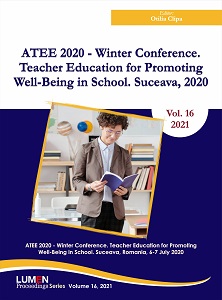Strategies for Adult Education Development in the European Educational Space and International Organizations’ Activities
Strategies for Adult Education Development in the European Educational Space and International Organizations’ Activities
Author(s): Marianna Marusynets, Kyryl Kotun, Tetiana Fursenko
Subject(s): Adult Education
Published by: Editura Lumen, Asociatia Lumen
Keywords: adult education;development;continuing education;lifelong learning;European countries, network of adult education centers;associations;
Summary/Abstract: Nowadays, the development of adult education as an important lifelong learning component is conditioned not only by the dynamics of social, scientific and technological progress, changes in the scope and nature of work, increasing leisure time, and opportunities for its rational use but also by the social role of both society and personality.Non-formal youth and adult education is becoming important in the context of ensuring the sustainable and balanced development of society. For the past two decades, adult education as a component of lifelong learning has been a defining goal of education policy in developed countries at the national and international levels. Adult education is considered a social indicator of the state policy human dimension, one of the ways to achieve socio-economic well-being, and a tool for promoting the ideas of the information and knowledge society.The problem of ensuring access to lifelong learning is becoming a priority, and its solution is possible only taking into account the achievements of foreign countries, including European ones, which are reviewed in the article (Austria, Poland, Liechtenstein, France, Spain, Norway, Sweden, Finland, and Ukraine). The article outlines the European countries` experience in the field of adult education and describes a network of lifelong learning institutions; it is identified strategic directions for the development of continuing education.
Book: ATEE 2020 - Winter Conference. Teacher Education for Promoting Well-Being in School. Suceava, 2020
- Page Range: 259-284
- Page Count: 25
- Publication Year: 2021
- Language: English
- Content File-PDF

